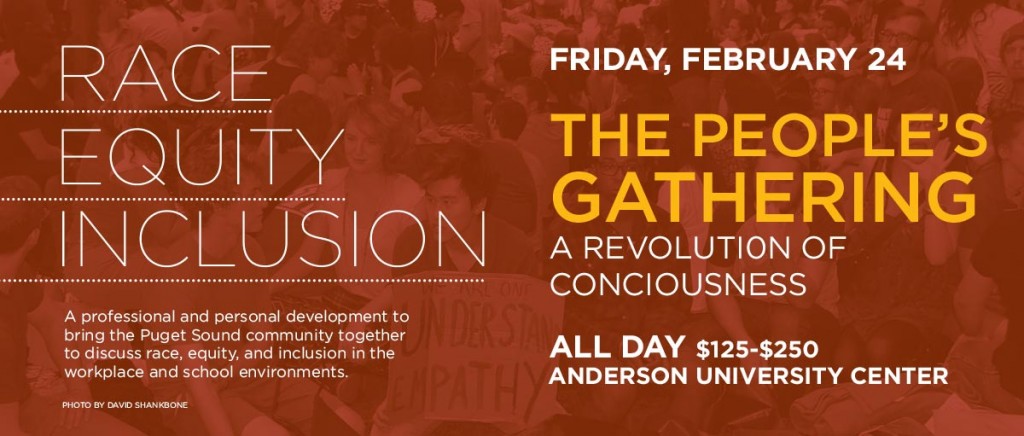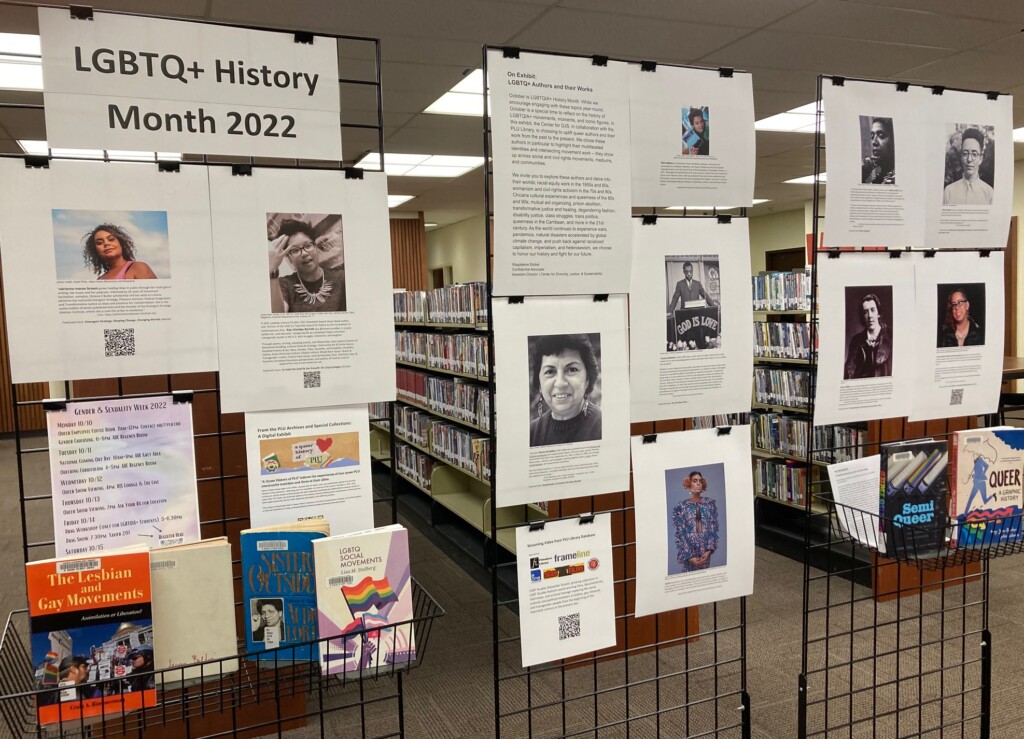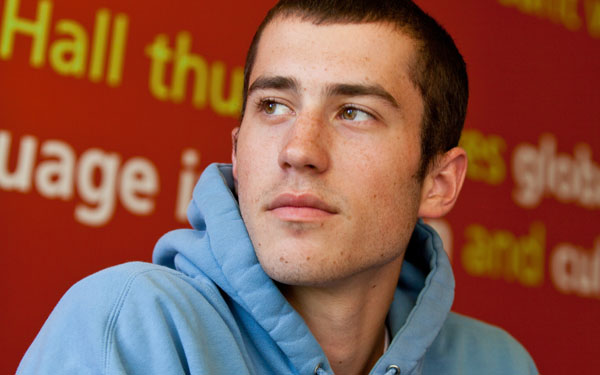Page 46 • (635 results in 0.039 seconds)
-
Biology Courses Take the following two required introductory biology courses: BIOL 225: Molecules, Cells and Organisms BIOL 226: Genes, Evolution, Diversity and Ecology You might also consider some
intended to demonstrate competency in grammar and composition as well as comprehension and analysis of written work. In general, the English requirement is met by taking courses that medical schools would recognize as writing or literature courses. Chemistry Courses Take the following two-course sequence in general chemistry: CHEM 115 (General Chemistry I)* CHEM 116 (General Chemistry II) Take the following two-course sequence in organic chemistry: CHEM 331/333 (Organic Chemistry I + laboratory) CHEM
-
Below, you will find a selection of activities and assignments that address some aspect of the research process.
collaborators Brief overview: In many fields, research is conducted in teams or with a collaborator. This activity will help students learn about important voices within a field, as well as identify their own potential “collaborators” from existing scholarship. Instructors, particularly those in introductory courses, will be able to help students understand why certain voices are important in their field, and how to draw on the expertise of others. This activity can be used in lieu of a literature review
-
Minor in Anthropology 16 semester hours Required: ANTH 102. Choose: ANTH 101, 103, or 203; 4 semester hours from ANTH 330–345; 4 semester hours from ANTH 350–499 At least 8 semester hours of ANTH
. (4) ANTH 368 : Edible Landscapes: The Foraging Spectrum - ES, GE The course examines foragers in Africa, North America, and Australia. Using classic ethnographic literature, it provides a cultural ecological perspective of foraging societies in a variety of environments. It also examines how foraging studies inform archaeological research and the challenges that these peoples now face in a rapidly changing world. (4) ANTH 370 : The Archaeology of Ancient Empires - ES, GE The origins of
-
Bestselling author and Ojibwe Indian David Treuer delivered the 2023 Natalie Mayer and Raphael Lemkin lecture.
to a field in which the analysis of process and perpetrator often precludes important questions about the victims themselves. About Dr. Patricia Heberer-RiceDr. Heberer Rice is one of the leading scholars on the Nazi Euthanasia murders. She has been based at the Museum’s Center for Advanced Holocaust Studies (former U.S. Holocaust Research Institute) since 1993. Heberer Rice completed her undergraduate degree in Historical Studies and German Language and Literature at Southern Illinois University
-
Bestselling author and Ojibwe Indian David Treuer delivered the 2023 Natalie Mayer and Raphael Lemkin lecture.
to a field in which the analysis of process and perpetrator often precludes important questions about the victims themselves. About Dr. Patricia Heberer-RiceDr. Heberer Rice is one of the leading scholars on the Nazi Euthanasia murders. She has been based at the Museum’s Center for Advanced Holocaust Studies (former U.S. Holocaust Research Institute) since 1993. Heberer Rice completed her undergraduate degree in Historical Studies and German Language and Literature at Southern Illinois University
-

Tune in: The People’s Gathering is streaming live TACOMA, WASH. (Jan. 27, 2017)- Genesis Housing and Community Development Coalition will host a professional development conference called The People’s Gathering on the campus of Pacific Lutheran University on Friday, February 24. The full-day conference will focus…
resistance to those forces) in the United States, and especially in the 20th century. Her research into the subject include examinations of anti-gay ballot measures in the 1970s, racism in the military in World War II, and feminist voices in popular literature in the post-WWII decades. She is actively involved in interdisciplinary programs and fields of study, including Women’s Studies and Peace Studies, and has participated in research and projects that center on the importance of historical thinking in
-

October is LGBTQIA+ History Month. While we encourage engaging with these topics year-round, October is a special time to reflect on the history of LGBTQIA+ movements, moments, and iconic figures. In this exhibit, the Center for DJS, in collaboration with the PLU Library, is choosing…
, and author of contemporary Caribbean literature. Her novel Tentacle was the first Spanish-language book to win the Grand Prize of the Association of Caribbean Writers in 2017. Although she experienced viral music success, Indiana has since shifted her focus to her literary career. She has authored three short story collections and five novels, three of which have been translated into English. Her work in science fiction prominently features themes of queerness, culture, and Dominican social issues
-

International Honors at PLU Kyle Schroeder lives in the International Honors wing of Hong International Hall. He says that IHON challenges him to think in a different manner. Four first-year students discuss PLU’s honors program By Steve Hansen Ask four first-year students from different backgrounds…
distinct historical and cultural norms. Similarly, the professors who teach the IHON classes also bring diversity in their disciplines – Randhawa’s two first-year IHON classes, for instance, were taught by experts in historical theology and French Literature. Randhawa loved them both. Others see it that way, too. And the benefit isn’t just in the classroom. “I like having friends who have completely different views and completely different visions of where their life is going to go,” said Nellie Moran
-
All Religion majors complete a major research project. Recent capstone projects completed by Religion majors are listed below.
Olbertz, The Christian Message Versus the American Dream: A Tillichian Analysis of Christian Self-Help Literature Sean Parshall, Using Q to Unlock John: How Q and Other Early Christian Sources Connect to the Gospel of John Katie Schinnell, When Church Became Cheap: A Contextual Study of Dietrich Bonhoeffer’s Theology of Grace Religion Erica ‘Aerii’ Smith, Christian Revivalism in the 1960s: A Call to Action Grant Stanaway, Agar, Habermas, and Tillich: on the Eugenic Question and Radical Acceptance
-
Major in History Minimum of 36 semester hours; including 4 semester hours of historical methods and research (HIST 301) and 4 semester hours of seminar credits (HIST 499).
European, Mughal, Ottoman, and Russian; the development of the world economic system, especially comparing the West with China and Japan; and cultural globalization in the late 20th and early 21st centuries. (4) HIST 107 : Ancient Near East - IT, GE Surveys the history of the ancient Near East and Mediterranean regions, including ancient Sumer, Egypt, Israel, Persia, Greece, and Rome. Major themes include empire building, religion, law, art, and literature. Students learn to investigate historical
Do you have any feedback for us? If so, feel free to use our Feedback Form.


